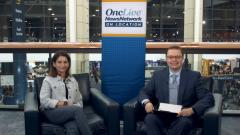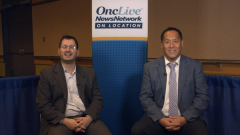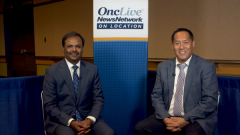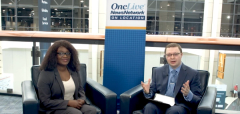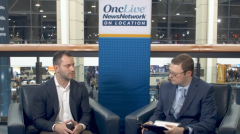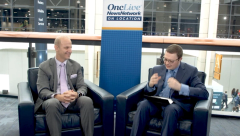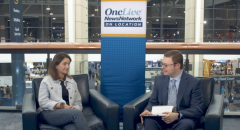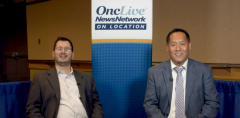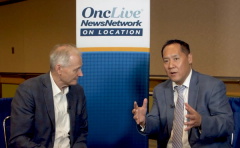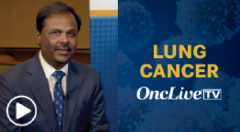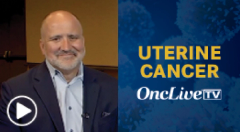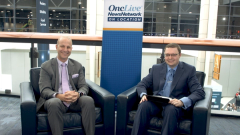
Dr Levy on the Clinical Application of ADCs in NSCLC Following ASCO 2024 Data
Benjamin Levy, MD, and Yan Leyfman, MD, discuss the clinical application of antibody-drug conjugates in non–small cell lung cancer.
Episodes in this series

Benjamin Levy, MD, clinical director, Medical Oncology, Johns Hopkins Sidney Kimmel Cancer Center, Sibley Memorial Hospital; associate professor, oncology, Johns Hopkins University School of Medicine, and Yan Leyfman, MD, internal medicine and clinical researcher, Mount Sinai; co-founder, executive director, MedNews Week, executive committee member, Music Beats Cancer, discuss the clinical application of antibody-drug conjugates (ADCs) in the treatment of patients with non–small cell lung cancer (NSCLC) on
When asked which ADCs show the most promising potential for clinical applications, Levy states that the 2024 ASCO Annual Meeting appears to be the first ASCO Annual Meeting with so many ADC presentations, reflecting rapid advancements in the field. There are multiple promising options, with findings from the phase 3 EVOKE-01 trial (NCT05089734) taking a prominent place, he says. This study compares sacituzumab govitecan-hziy (Trodelvy) with docetaxel in the second-line setting in an enriched patient population that includes patients with both nonsquamous and squamous disease. Unfortunately, the study
Another ADC of interest is telisotuzumab vedotin, a MET-directed ADC. Data from the phase 2 LUMINOSITY/M14-239 trial (NCT03539536) were discussed at the meeting, focusing on both patients with EGFR wild-type and EGFR-mutant NSCLC. Preliminary results indicate that patients with wild-type disease with high MET expression derive the most benefit. The nuances of these data will be intriguing to explore, Levy says.
The 2024 ASCO Annual Meeting was incredibly exciting with so much progress seen in the ADC field, especially as advancements in TROP2-directed ADCs, MET-directed ADCs, and translational and predictive biomarkers propel the field forward, according to Levy. This is a thrilling time to witness these developments, he concludes.


